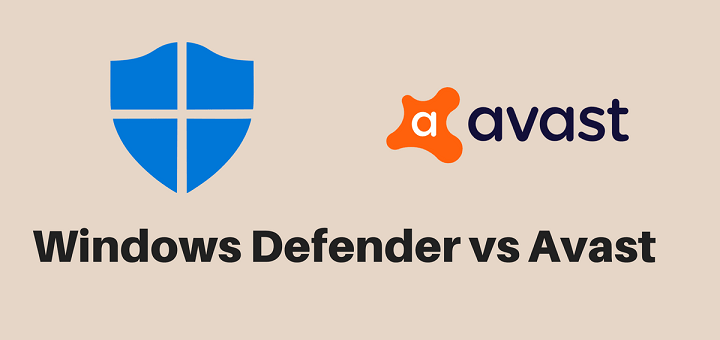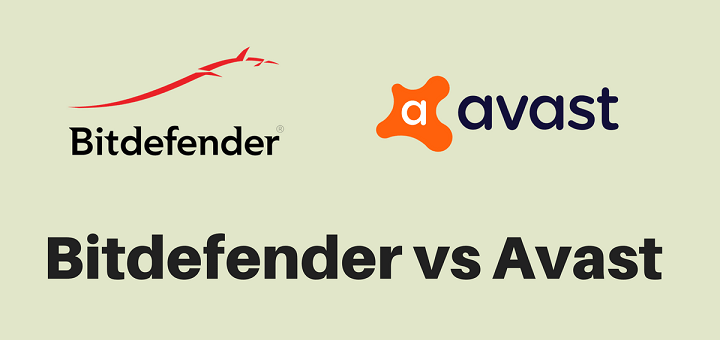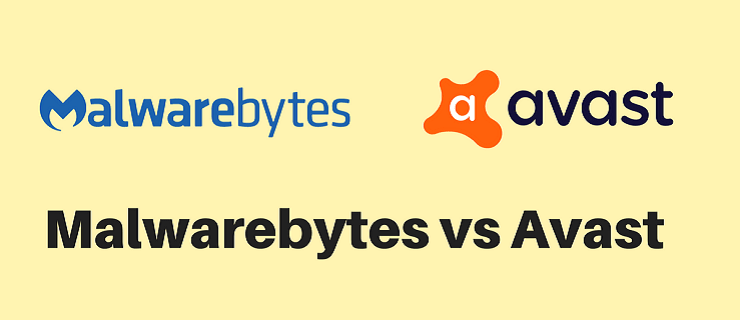(Last updated on January 9th, 2023)
Protecting your system from digital threats is extremely important if you want to prevent cybercriminals from stealing your confidential data and intruding on your privacy.
Many people find it difficult when it comes to differentiating between a firewall and an antivirus, as both are cybersecurity tools that protect your system from digital threats.
A firewall helps you control and manage network traffic in the system, whereas antivirus software protects your computer by detecting and removing malicious files and viruses.
Antivirus and firewall operate and work in significantly different ways. This article tells you about major differences between the two cybersecurity tools, which will surely help you decide which security solution to buy for protecting your system.
Let’s begin by having a quick overview of the differences between antivirus software and a firewall.
Major Differences at a Glance
- A firewall prevents infected and malicious software from entering your computer, whereas an antivirus program detects and removes infected files from your system.
- A firewall protects your system at the ‘network protocol level’ by preventing all suspicious packets from entering your PC, while antivirus software protects your computer at the ‘file-level’ by removing all malicious files.
- A firewall protects both software and hardware on the network. In contrast, antivirus software basically safeguards other software.
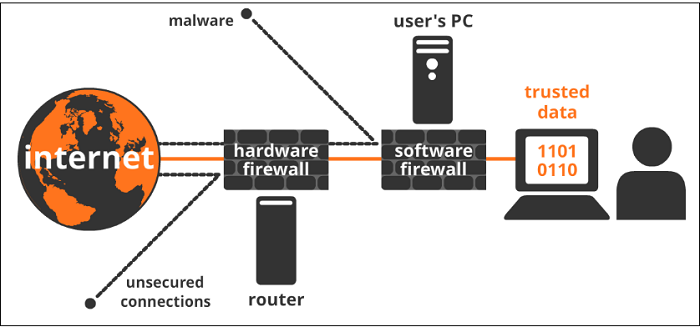
Let’s understand the concept in detail.
Firewall
A firewall works as a barrier between your network and the World Wide Web. It protects your computer from external threats by monitoring incoming and outgoing traffic from your system and preventing suspicious packets from entering or leaving the network.
A major difference between the two cybersecurity tools is that you can implement a firewall at both software and hardware levels. In contrast, an antivirus can only be applied at the software level.
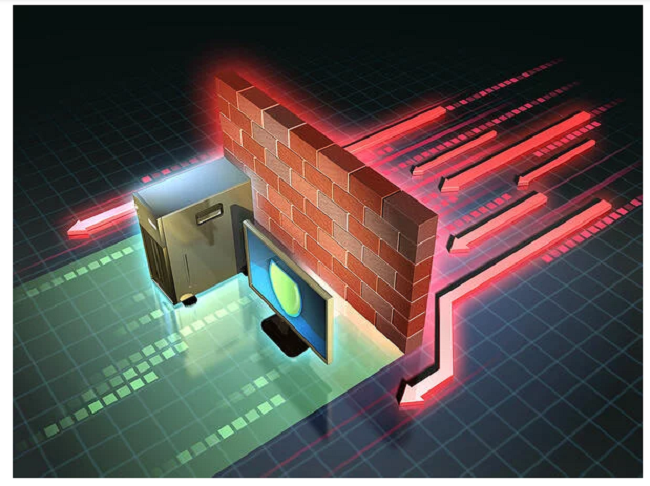
A firewall works as the main gate to a building. Its objective is to let only authorized people access the building while preventing unauthorized entry to the property (e.g. preventing animals, thieves, and other unwanted people from getting access to the property).
Types of Firewalls
Firewalls can be divided into three kinds based on communication location, interception location and the state in which data is traced.
- A Network Layer Firewall monitors the incoming and outgoing packets of data. Then, based on pre-defined filtering rules, this type of firewall protects your system by accepting or rejecting packets.
- An Application-Level Firewall protects a specific application. It puts in place security mechanisms to block all unwanted traffic over the network.
- A Circuit-Level Firewall allows only specific packets to enter the network and completely blocks all other packets. Also known as proxy servers, this type of firewall protects the network by hiding your IP address.

Antivirus
Antivirus software is the most common system protection tool that is used by both home users and businesses. The primary function of an antivirus program is to detect, prevent and remove harmful files and software from your system. The antivirus also protects the system from any further attack by monitoring online traffic.
An antivirus program runs on a computer and watches all incoming files (downloads from the Internet, email attachments, files copied to the computer through a USB flash drive, CD or Bluetooth, etc.). It flags files if they are infected with any kind of malware, including viruses, Trojans, rootkits, spyware, ransomware, keyloggers, etc.

Antivirus programs have a “signature” database of already known malware. They use this database to quarantine or remove infected files during a scan or while such files are being copied to the system.
Today’s antivirus programs also use a heuristic approach and machine learning algorithms to learn about newly emerging digital threats.
Now that the basic definition of both antivirus and firewall is clear, let’s explore the differences further.
Prevention vs Protection
A firewall thwarts malware by keeping a close eye over your network traffic and preventing malicious data to affect the network.
However, your system may still get infected with malware through a CD or DVD, or if you download it accidentally or click a spam link. At this stage, i.e. when the malware gets into your system despite firewall protection, the role of antivirus software comes into play. An antivirus program detects malicious files present on the system and removes them or puts them in quarantine depending on the level of threat.

In short, a firewall prevents malware from entering your computer, but it can do nothing if a malicious file is already present on your system or manages to get into the system.
Related: How to Tell if a Website is Safe.
Different Approaches
A firewall acts as a gatekeeper to your system, letting the safe packets come in and blocking malicious data. So, when you are on the Internet, a firewall is the first line of defense that comes to your rescue.
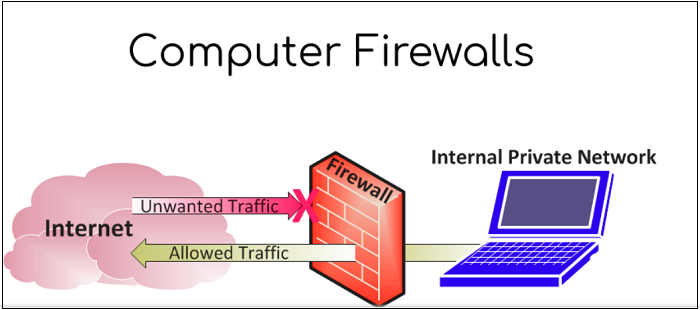
An antivirus, on the other hand, uses known patterns and a heuristics approach to thwart numerous malware threats from your computer.

Anas Baig is a consumer privacy advocate and cybersecurity journalist by profession. Has has more than 7 years of professional experience under his belt. Anas has been featured on numerous media publications including The Guardian, Lifehacker, The Next Web, Infosecurity Magazine, Security Boulevard, Hacker Noon, CMS Wire, IAPP, SC Magazine, and many others. His interest includes Digital Privacy Rights, Information Security, Networking, Privacy, and Data Protection.
My Contributions:
Hacker Noon | TheNextWeb | DevOps.com | GlobalSign | CMS Wire | CSO | Tech.co | Security Boulevard | ITProPortal | MuckRack | Crunchbase




